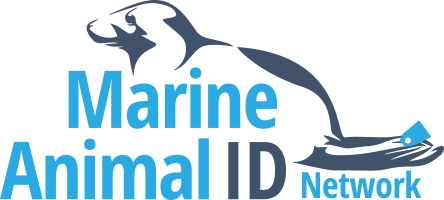This website and database is the resulting product of one of many needs identified by the attendants of workshops and meetings held to address issues concerning seals in the region. The workshop reports can be found at http://www.whoi.edu/page.do?pid=100696&tid=3622&cid=41026.
As part of the effort to improve collaboration and communication amongst stakeholders, the formation of a relevant consortium and adoption of a mandate was proposed.
Mandate of the Northwest Atlantic Seal Research Consortium
To improve our understanding of the ecological role of seals in the northeast U.S. This will be accomplished through coordinated research efforts, sharing of data, collaboration amongst all stakeholders, a concentrated effort to gain knowledge, and public outreach. The consortium will include scientists (NGO’s, universities, state and federal government), fishermen (commercial and recreational), and anyone who shares an interest.
The Consortium Mission
Working collaboratively to improve our understanding of the ecological role of seals in the Northwest Atlantic.
Steering Committee
Andrea Bogomolni is a Research Associate at the Woods Hole Oceanographic Institution and a Ph.D. candidate at the University of Connecticut in the Department of Pathobiology. Her current research addresses disease in marine mammals and how environmental stressors may affect health. In her research, seals continuously have been found to be the ideal representative sentinel species for monitoring ocean and human health. In addition to disease related research, she is also involved in spearheading seal monitoring, counts and individual photo identification in seals in southern Maine/Northern New Hampshire and is dedicated to increasing communication and collaborations to address and answer questions involving seals in the northeast U.S.
Keith Matassa is Coordinator of the University of New England Marine Animal Rehabilitation Center in Biddeford, Maine. His research interests are multifaceted, but center around new and emerging diseases that affect marine animals and humans including transmission of these diseases, immunology systems of marine mammals and antibiotic resistance. He is also involved in research into the disposal of marine mammals by composting and studies the breakdown of persistent and non-persistent contaminants and pharmaceuticals in the compost pile.
Greg Early has worked with marine mammal rescue, rehabilitation research and husbandry programs for over twenty five years and has organized meetings and conferences about pinniped/human interactions on the east and west coasts.
Owen C. Nichols is director of the Marine Fisheries Research program at the Provincetown Center for Coastal Studies and a Ph.D. candidate at the University of Massachusetts. His primary research interests include fisheries oceanography, distributional ecology, and marine mammal/fishery interactions. Key elements of his work are direct involvement of fishermen in all aspects of research projects, and the application and deployment of advanced sensing and imaging technology.
Lisa Sette is part of the Marine Animal Entanglement Response Team at the Provincetown Center for Coastal Studies (PCCS). She is also working on a seal project with PCCS investigating the movements and site fidelity of gray seals as well as the occurrence of entanglement using photo-identification. Currently, she is monitoring several haul-out locations around the Cape and Islands.
Stephanie Wood has worked on several pinniped studies in the northeast U.S. including seal captures and tagging, aerial survey work and food habits studies. She received a Ph.D. in Biology from the University of Massachusetts, Boston. Her dissertation research focused on the recovering gray seal population in the northeast U.S. She is currently a contract biologist for the Northeast Fisheries Science Center.
Rob DiGiovanni (coming soon)
